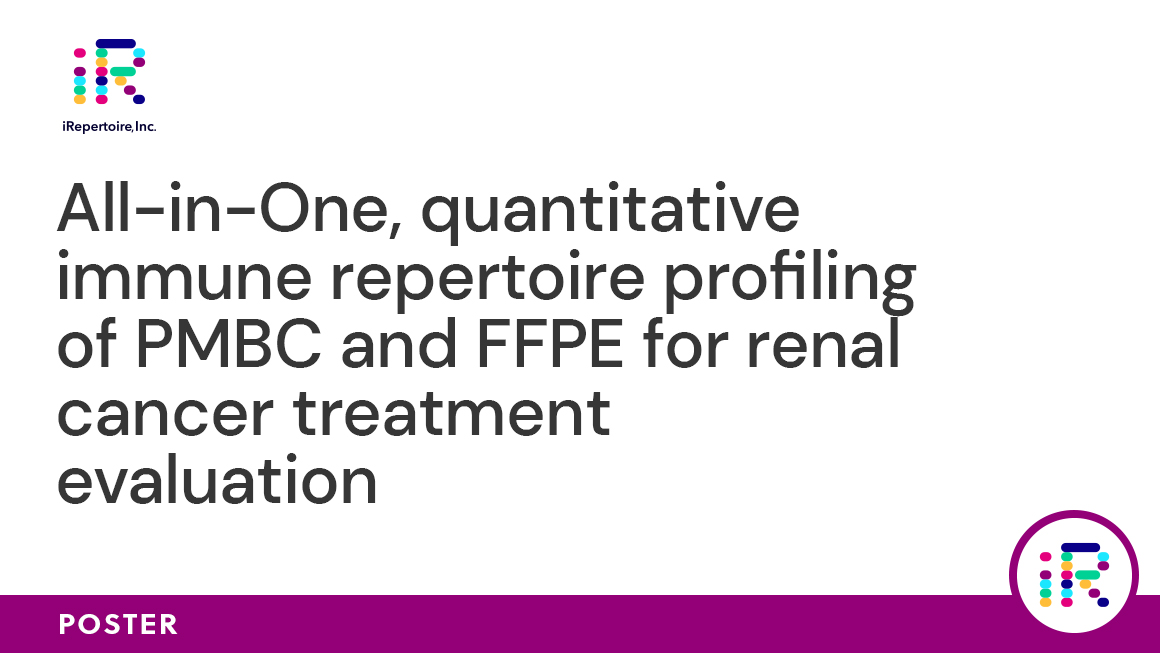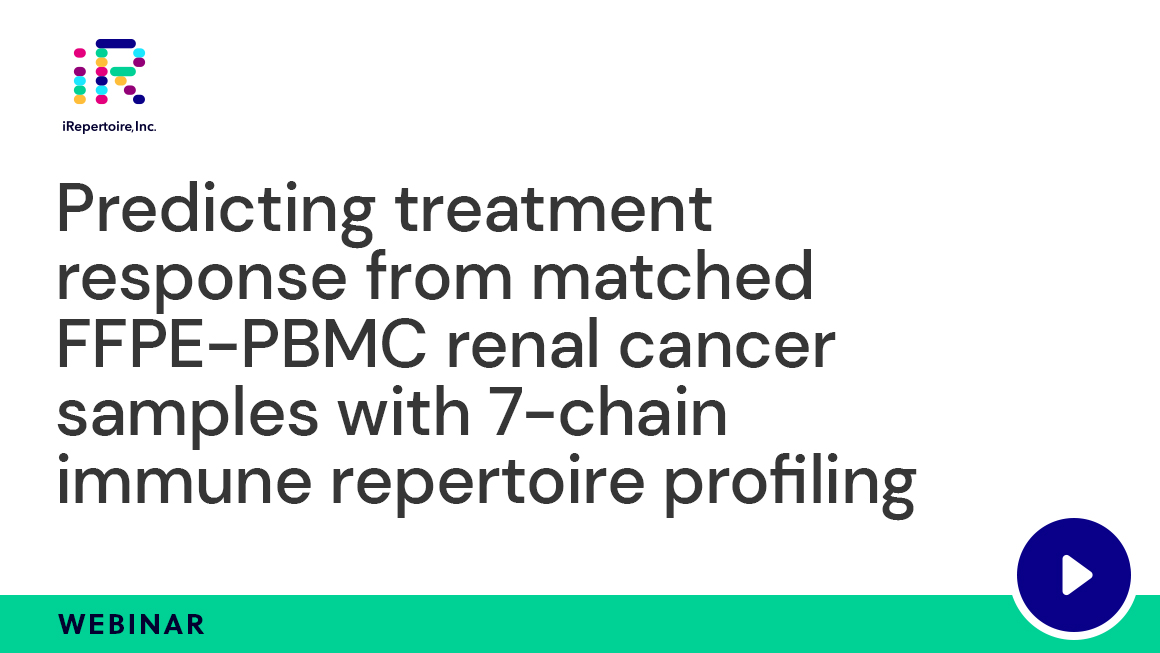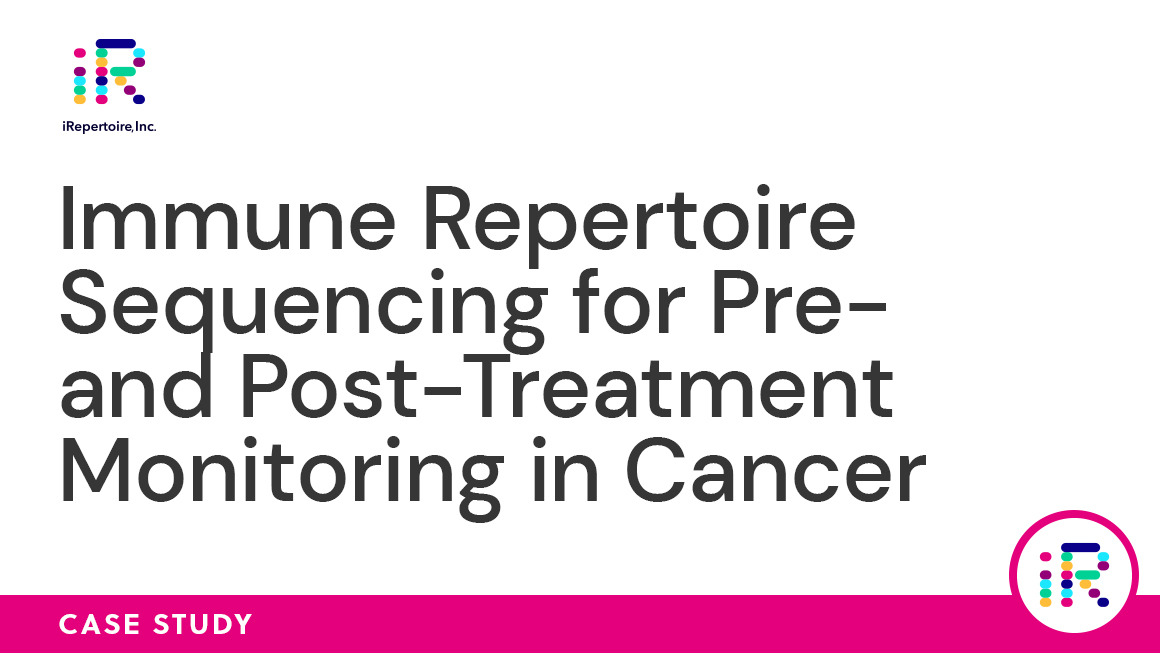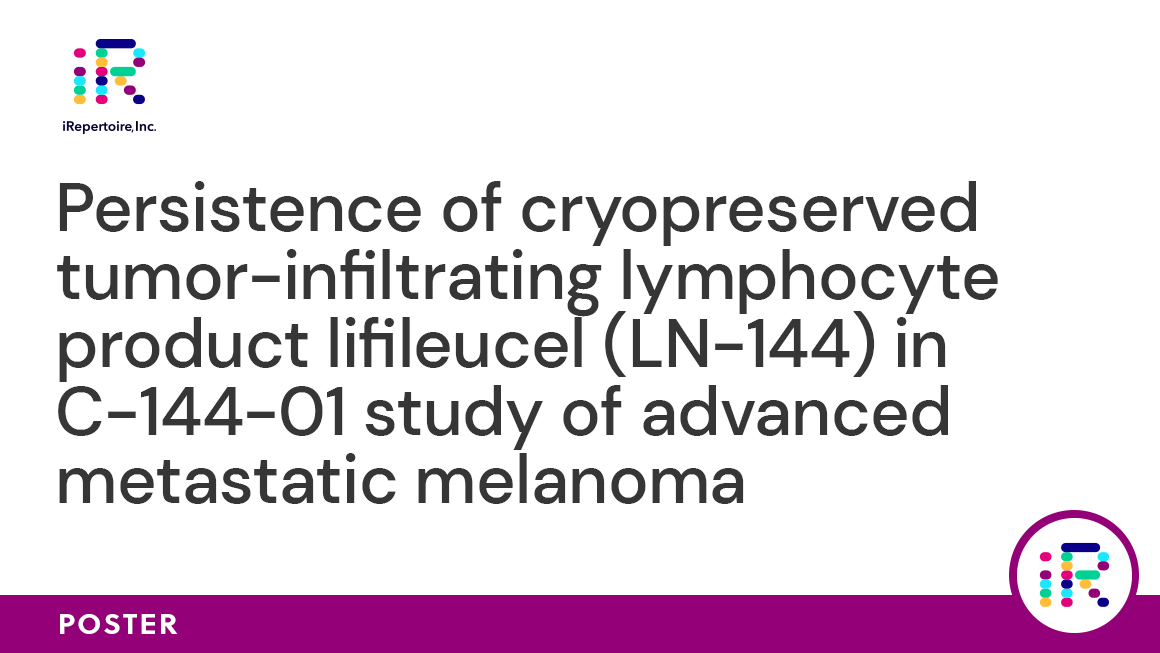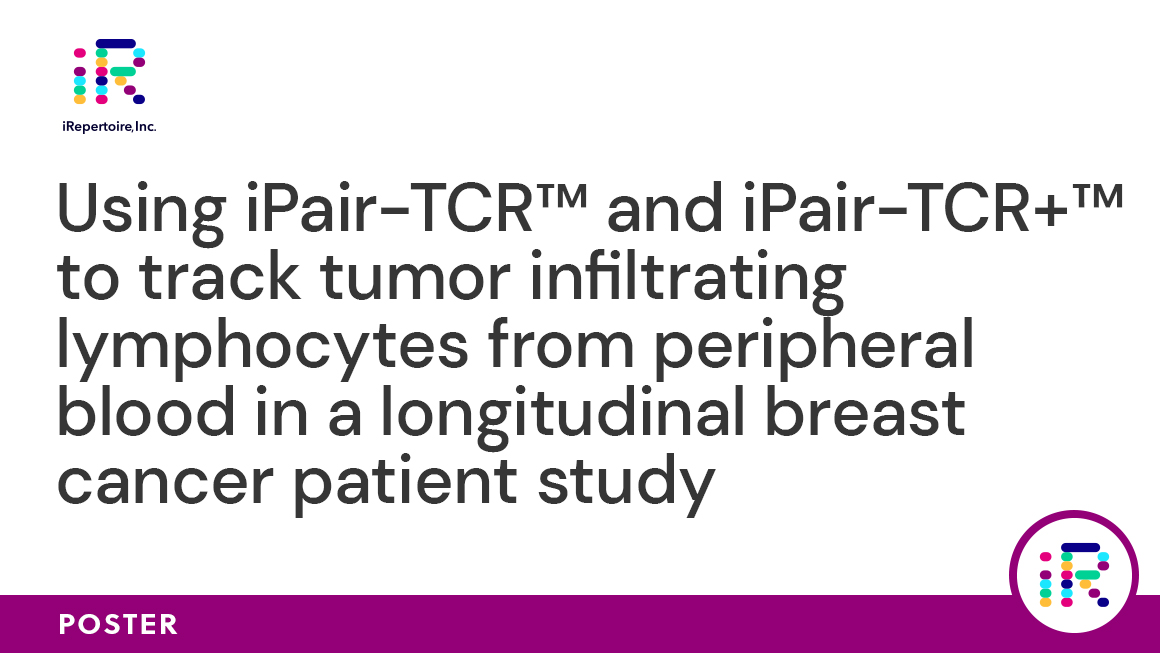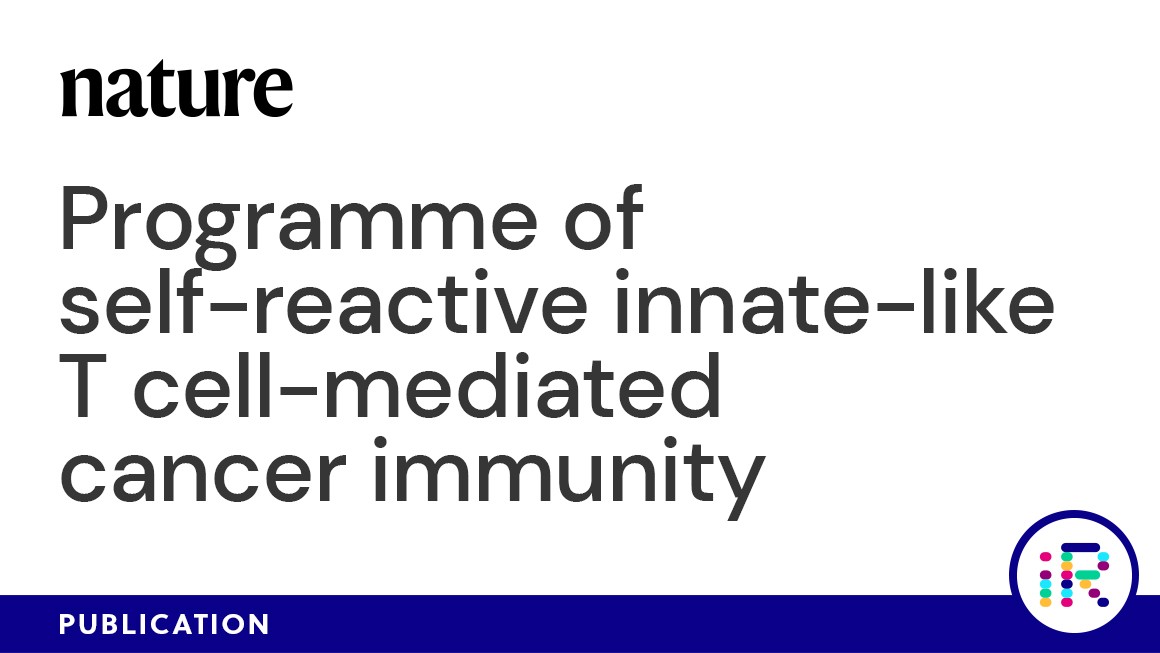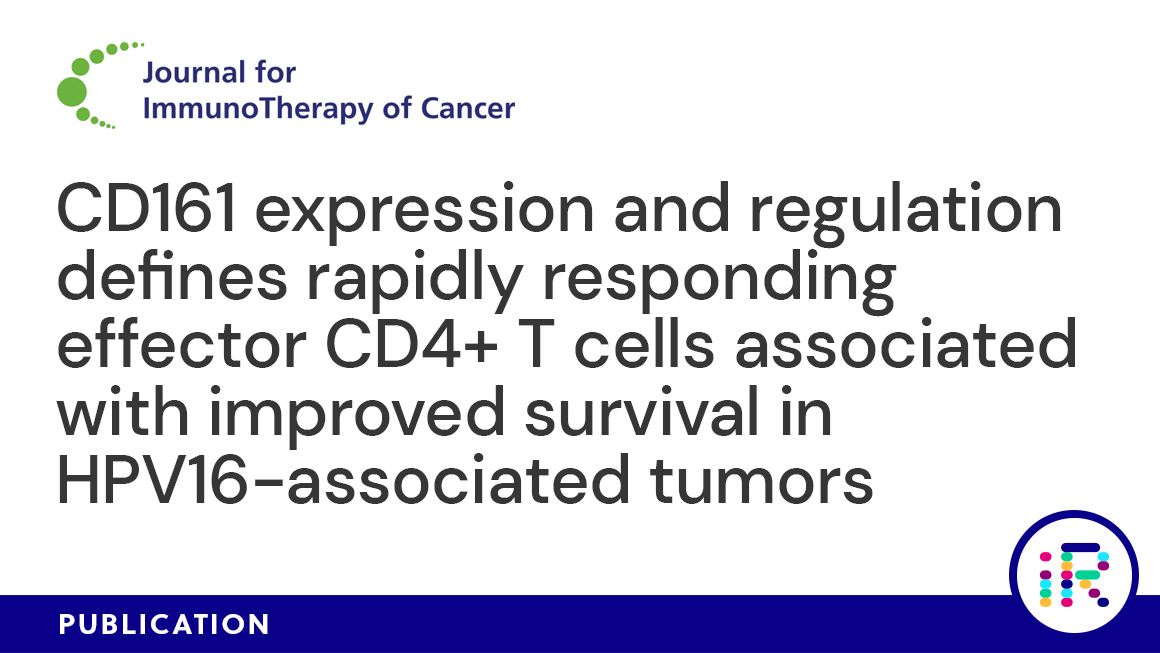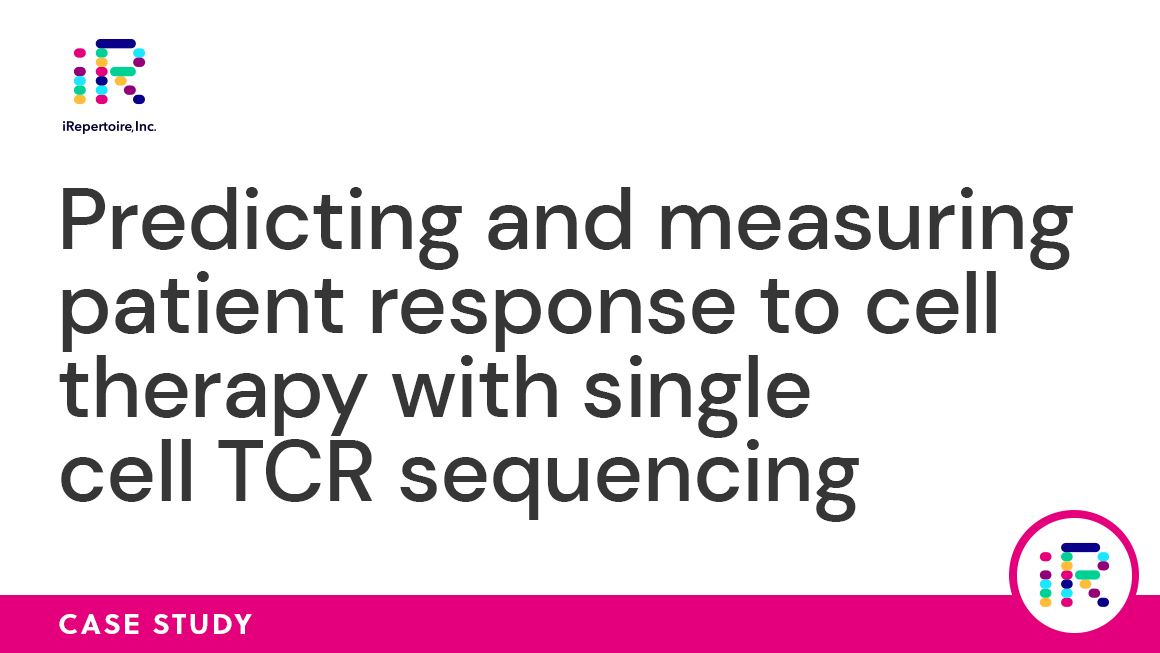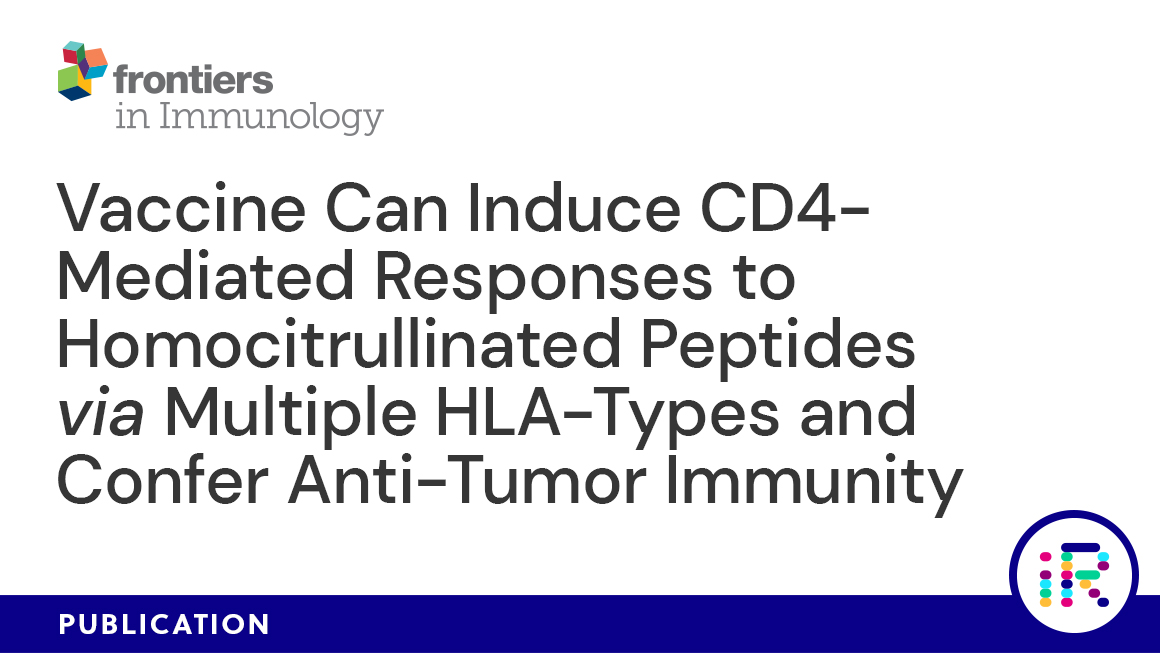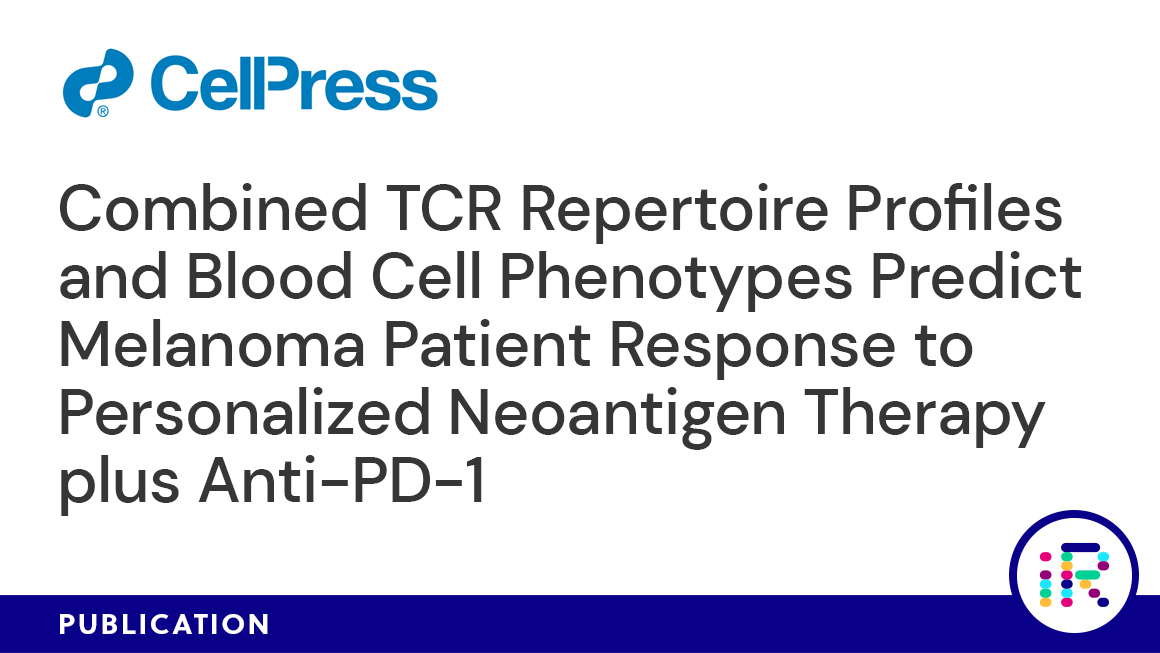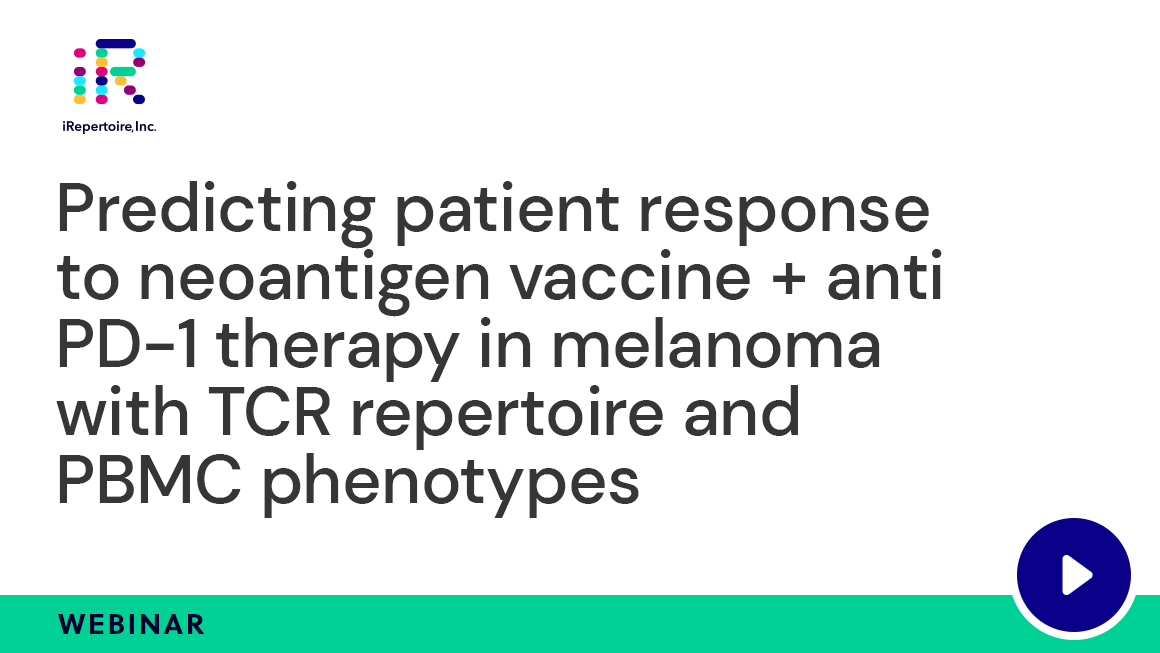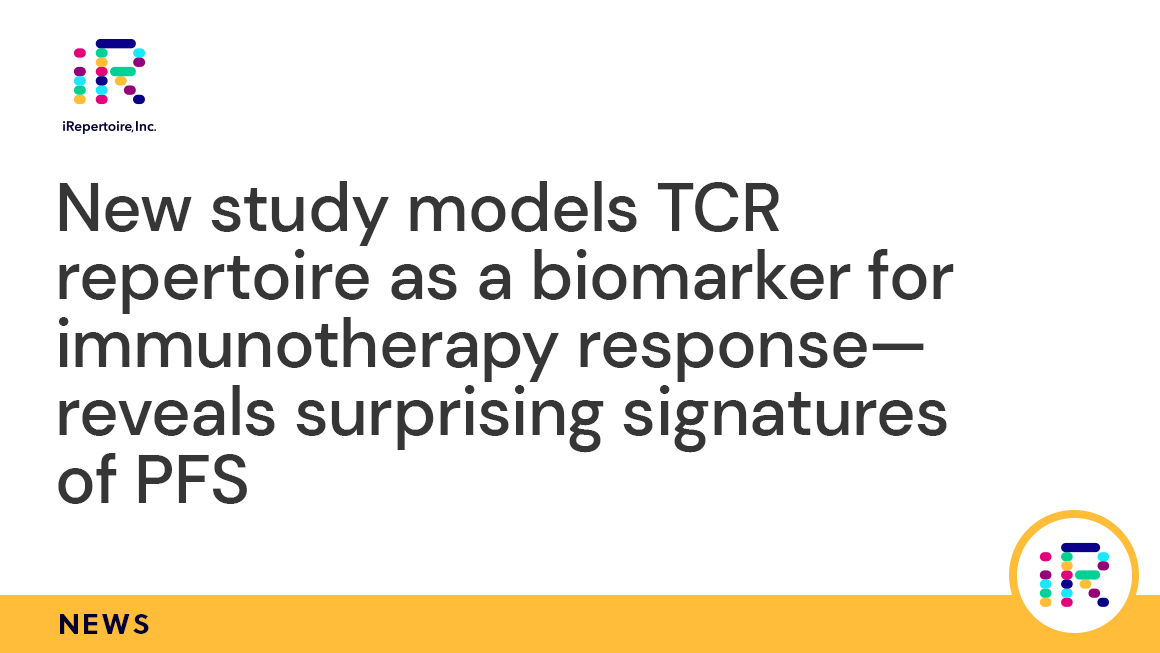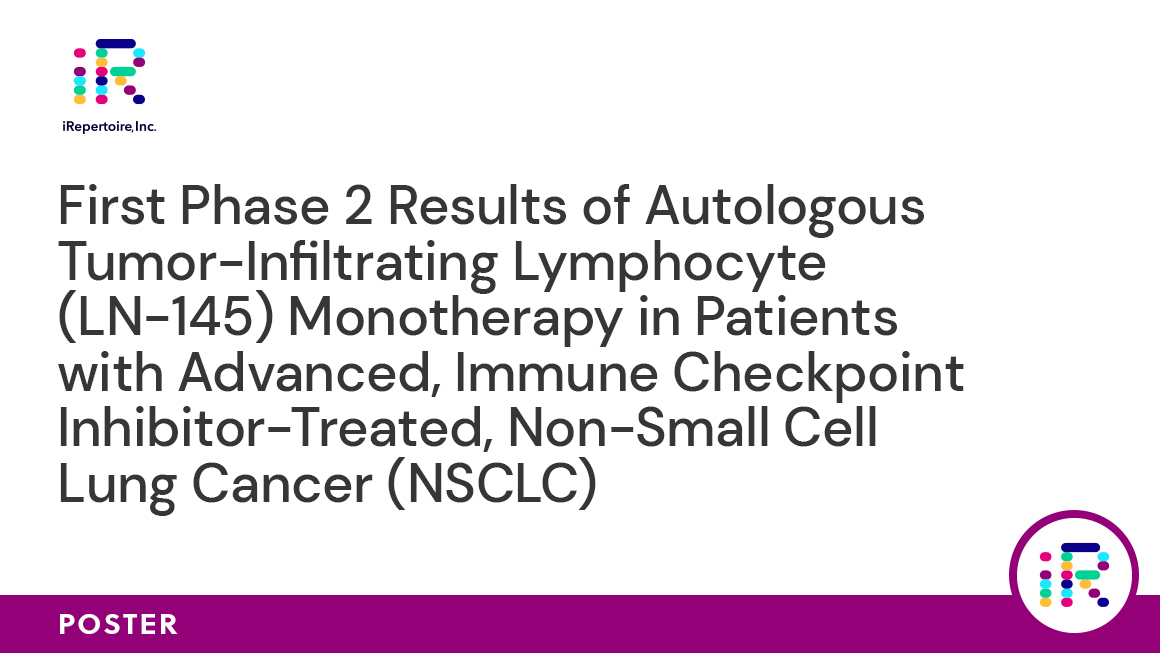Capture patient response in immuno-oncology with immune repertoire profiling
Drive your immuno-oncology development program forward across all IO drug classes with immune repertoire profiling
Emerging immuno-oncology therapies hold great promise for cancer treatment, providing complete remission for late-stage or treatment resistant cancers but, often only for a small subset of cases. iRepertoire's advanced immune profiling services provide unparalleled detail about individual immune responses to treatment, unlocking essential information to inform clinical trials and future cancer immunotherapy development.
Immune repertoire profiling reveals patient responses to immunotherapy, such as immune checkpoint inhibitors
Immune checkpoint inhibitors (ICIs) prevent cancer cells from escaping detection by the host immune system, however only 20-40% of patients respond... show more
Because these compounds act on many different types of immune cells, emerging studies indicate that understanding a patient's immune repertoire is critical to mapping ICI therapy response. In one case study, examination of pre- and post-treatment samples from patients treated with ICIs identified a novel signature involving immune checkpoint proteins that was associated with a positive clinical result.
Immune profiling to track tumor infiltrating lymphocytes in patient blood
Comprehensive and quantitative immune repertoire sequencing data allows clinical researchers to identify which T cells are in the tumor, monitor the T cell populations in the TIL therapy production pipeline, and track the T cells over time in an individual patient... show more
A poster presentation demonstrates how immune profiling was used to monitor tumor infiltrating lymphocytes in advanced metastatic melanoma patients treated with TIL therapy.
Repertoire analysis of ex vivo antigen-stimulated T cells derived from PBMC can reveal expanded clonotypes
T-cells derived from autologous peripheral blood can be stimulated with peptide-loaded dendritic cells or other methods. Immune repertoire sequencing or single cell sequencing can reveal the identity of expanded TCRs and characterize the T-cell product in a similar manner to TIL or Car-T therapies. These clonotypes can then be tracked in patients to observe and track the expansion or contraction of the clones in vivo. By uncovering the peptide-antigenic synapse, uncovered TCR pairs bring the potential for downstream off the shelf engineered T-cell therapeutics.
Immune cell-based gene therapy for improved clinical outcomes
iRepertoire's inclusive RepSeq+ chemistry provides a reproducible, quantitative measurement of donor T cell sequences with the potential of also tracking the CAR-T product in the context of a patient's repertoire. After genetically engineering T-cells, immune profiling can also be used to ensure the diversity of the population of the final product. This recent case study reviews how iRepertoire's single-cell iPair service was used to track TCR expansion and diversity.
Using single-cell sequencing to identify paired neo-epitope-specific TCRs during cancer vaccine development
Activated T cells responding to cancer neoantigens are extremely valuable to identify and sequence for subsequent therapeutic development but are difficult to detect from clinical specimens... show more
iRepertoire's array of sensitive multiplex amplification chemistries provide the necessary tools for this critical first step in cancer vaccine development. For example, iPair single cell V(D)J receptor pairing was utilized to identify neo-epitope specific TCRs (paired TCR alpha and beta) directly from primary tumor cells in the highlighted study by Ott et. al.
Reliable characterization of manufactured cell products like CAR-T cells and TILs
Scaling up manufacturing of cells can pose many risks. Does a process or cell reactor change or affect the cell product diversity or clonotype distribution? By utilizing immune repertoire profiling, changes to cell manufacturing can be assessed accurately and precisely. It is essential to characterize the uniformity of manufactured cell products to maximize efficacy and minimize adverse outcomes after transplantation. This poster provides data demonstrating static gaspermeable cell culture bags can be used for TIL cell therapy manufacturing.
Immune profiling solutions with expert support
Bulk Repertoire Profiling
In a single reaction, amplify V(D)Js in B or T cells with RepSeq. Measure all 7 immune chains with RepSeq+
Single Cell Profiling
Capture the paired variable regions of B and T cells with iPair and iPair+
Bioinformatics
Explore and compare the immune repertoire diversity for each chain in a BCR or TCR
Explore our Learning Center for more resources
Find out more about iRepertoire's solutions for improving immunotherapy efficacy and patient outcomes.
Ready to get started?
iRepertoire serves as a leader in the field of immune repertoire profiling. We invite you to consult with our team of scientists to discover how our services can accelerate your analysis of immune cell function and diversity.


